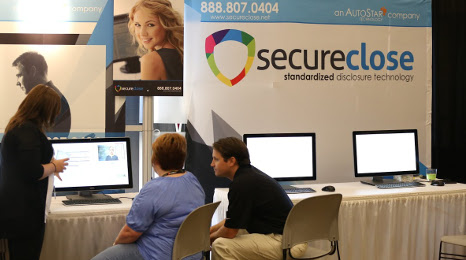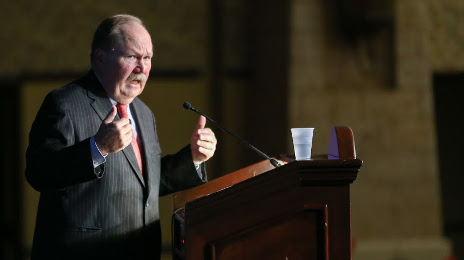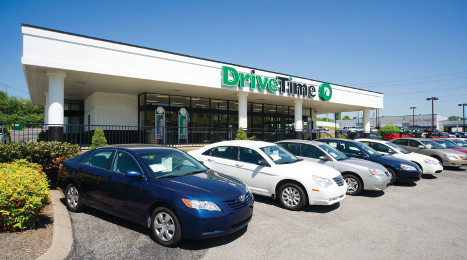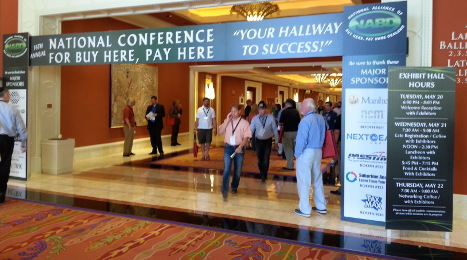A recent New York Times story painted an unflattering picture of technology so critical to buy-here, pay-here operators nowadays — GPS and starter interrupt devices. The feature also described pending litigation involving devices manufactured by one of the industry’s top providers — PassTime.
In response, PassTime officials shared a memo with BHPH Report, reinforcing the quality of its devices and the crucial role the company plays in the success of BHPH operators nationwide.
“PassTime has been recently contacted by various media outlets regarding its products as the result of pending litigation against one of PassTime’s valued customers. Our company policies prevent us from commenting on pending litigation involving our product,” the company said in its memo distributed on Tuesday.
“With that said, our device plays a vital role in allowing those who might not otherwise qualify for an auto credit to get financed. We are proud that our technology has given consumers greater access to financing and enhanced transportation options,” PassTime continued.
In the New York Times story, the newspaper recapped the testimony given to the Nevada legislature by a woman who asserted that her vehicle was shut off while she was traveling on a busy Las Vegas freeway. The vehicle reportedly had a PassTime device installed by the subprime finance company who provided the loan.
The report indicated the borrower wasn’t behind on payments, but she reached a confidential settlement with the finance company following the incident.
“Devices cannot disable a moving vehicle, and all devices capable of vehicle disablement have audible warnings reminding the consumer when payment is due,” PassTime said in its memo.
“In the event of an emergency or to avoid inconvenience, a customer who has their vehicle disabled for non-payment may contact PassTime 24/7 for a code allowing the customer another 24 hours to drive the vehicle,” the company continued.
PassTime pointed out in its memo that the company has been in business nearly two decades and has more than 1 million devices currently in use.
“During that time, thousands of car buyers have personally called the PassTime customer service line to thank us for helping them get car financing for a better vehicle at lower rates that they otherwise would have had access to without the device,” the company said.
“Further, independent studies have demonstrated that, with the use of devices like PassTime, payment default rates at dealerships using the devices fall from as high as 40 percent to below 5 percent, while repossession rates as high as 25 percent to 30 percent fall to below 3 percent,” the company continued.
“In simple terms, the devices let people buy cars, and let them keep cars,” PassTime went on to say. “Nearly all car buyers with these devices installed also consistently see their credit scores improve — and access to credit builds personal wealth.”
The company also mentioned the lengths it goes to keep itself and its clients compliant. During the most recent national conference orchestrated by the National Alliance of Buy-Here, Pay-Here Dealers, PassTime joined with Hudson Cook to host a nearly two-hour seminar on now to use GPS and starter interrupt devices properly. Part of that education material was reviewed during the BHPH Webinar Training Series session hosted by BHPH Report.
“PassTime actively works with dealers and finance sources to ensure compliance with applicable local and federal laws. This includes providing regular workshops on the issues of legal compliance,” the company said. We have engaged national compliance counsel for over 15 years to monitor and advise us of changes in federal and state laws that impact the use of devices as those changes occur.
“PassTime also works with state regulators to ensure the regulators understand the use and safety of the devices and that PassTime complies with applicable state law. Passtime has also consulted on state legislation ensuring that enacted laws provide proper consumer protection and guidance for dealers and finance companies using the devices,” the company continued.
The company also refuted an insinuation made in the New York Times report regarding how borrowers have to pay extra to have these devices installed on vehicles.
“PassTime prohibits its dealers and finance sources from charging car buyers for the devices. PassTime provides its dealers a comprehensive disclosure statement detailing the purpose and functions of the devices — including, where applicable, a device’s ability to render a vehicle unable to start,” the company said.
“Dealers agree to use the PassTime disclosure or adopt a similar comprehensive disclosure that a car buyer must read and sign before buying the car,” the company went on to say.
PassTime closed its memo by reiterating its entire position on all of the matters raised in the newspaper report.
“PassTime is proud of its products, committed to compliance, and respectful of consumers,” the company said. “Again, PassTime will not comment on the merit or lack of merit of any lawsuit. PassTime will conduct an internal, thorough investigation of the matter, and will continue to ensure its compliance with the law.”
Compliance technology provider SecureClose wrapped up AutoStar Solutions’ seventh annual Innovate conference on Wednesday with a list of 10 recommendations for how to significantly decrease risk from lawsuits and government actions pertaining to the F&I closing process.
Brent Chavez and Joe Perkins of SecureClose first cited the latest move by the Consumer Financial Protection Bureau to expand its supervision to large non-bank auto finance companies. Chavez said dealers and finance companies have experienced more expansion of government regulation in the last several years than at any other time in his career.
As a result, Chavez urged dealers to:
1. Record your sale closings.
2. Script your disclosures.
3. Document your training.
4. Establish clear processes and procedures.
5. Get an outside compliance review.
6. Appoint a compliance manager.
7. Develop a customer complaint procedure and log.
8. Manage your vendor compliance.
9. Automate processes for improved accuracy and consistency.
10. Implement a proactive review process to catch violations before it’s too late.
“As a car dealer myself for more than 20 years, I understand the pressures dealers face on a daily basis,” SecureClose founder Ace Christian said. “To be quite honest, the last five years have been the toughest for me due to changes in the market, increased competition, hard-to-find inventory and the biggest one — government regulation.”
Christian said the F&I office is one of the most heavily regulated areas of a dealership. With so many constantly changing checklists and disclosures — combined with the element of human error and fatigue at the end of a long day — Christian acknowledged violations are bound to happen.
Christian said dealers need a way to automate the closing process to ensure consistency, along with a reliable method to record closings and store them for easy access.
“Video recordings by themselves are not a complete solution,” he said. “I can’t tell you how many times I’ve seen dealers videotape closings that — when watched back later — clearly show violations. Not to mention the technical difficulties inherent with quality video coverage and storage.
“Training also doesn’t fix the fact that your F&I guy is a human being,” Christian said. “After a 12-hour day, he’s tired. He wants to go home. The customer wants to go home. So maybe he forgets a point or two. What’s the big deal? Well, when that forgetfulness comes back to bite you in a year after the customer has sued and that F&I guy no longer works for you, it is a huge deal.”
Christian demonstrated for attendees how SecureClose can help dealers ensure every closing is fully compliant by utilizing computer screens that verbally walk customers through each closing document. He explained all information used adheres to the latest national and state-specific regulations. Buyers can pause or rewind as many times as they wish to make sure they understand the contract terms — but no fast-forwarding or skipping any steps.
An electronic signature tablet captures signatures and places them in the appropriate spots in the document. A front-facing camera records audio and video of the entire process, including everything shown and done on the system screen.
Once the presentation is complete and all documents signed, audio and video of the customer plus the recording of the on-screen activity can be combined in a comprehensive ClosingRecord, which is stored on a secure online server for future retrieval. The dealer or customer can view this complete record at any time.
“SecureClose protects the customer and the dealer from being taken advantage of,” Christian said. “It’s the answer to most of the regulations coming out of Washington, D.C., right now. And it’s certainly a vital component of any dealership that wants to stop lawsuits before they start.”
Christian has used various versions of SecureClose at his dealership in Arizona for the past year.
“I received several attorney demand letters during that time. I just sent them the ClosingRecord for those deals, and I never heard from them again,” Christian said.
Steve Levine is chief legal officer for AutoStar Solutions, which acquired a 50-percent stake in SecureClose earlier this year. Levine is expecting finance companies will champion SecureClose to their dealers.
“It’s not just a buy-here, pay-here solution,” Levine said. “When retail dealers use this product, finance companies can have confidence their dealers conducted a fully compliant closing. That means no complaints from the consumer six months down the road, after the lender has already acquired the contract.”
SecureClose is available nationwide. Levine said the company is following an aggressive installation schedule to make SecureClose available to dealers of all sizes.
Collecting More During Payment Proccess
Elsewhere at the Innovate conference, Susan Perlmutter, chief revenue officer for Sigma Payment Solutions, shared with BHPH dealers several strategies for lowering the costs of payment acceptance.
“Once you combine a collector’s hourly pay, overhead and the cost of the credit card payment, you’re looking at more than $6 per payment,” Perlmutter said. “You can offset that amount by allowing a provider such as Sigma to pass a convenience fee to the consumer.
“The other option is self-service consumer payment channels,” she continued. “This empowers your customer to pay with no staff interaction. No human error, no vacation or sick days. You can accept payments 24 hours a day, seven days a week, 365 days a year. Your collectors can then focus their attention on delinquent customers.”
Sigma Payment Solutions’ automated options include pay-by-text, kiosks and Interactive Voice Response (IVR). Perlmutter pointed out each of these choices can help dealers bring costs down to 55 cents per payment — a savings of about $5.75.
Strategy for Small Dealers
David Brotherton, consultant and 20 Group leader at Leedom & Associates, led a class teaching smaller BHPH dealers and focused on ways they can “level the playing field” against larger competitors. Brotherton offered three tips:
1. Learn as much as you can about the customer. The more you know about your potential buyer, the greater your chance to get them sold. Once they visit your dealership and hear your program details, you have a tremendous advantage over the dealer down the street — so don’t waste the opportunity.
2. Measure activity levels before results, at least initially. Activity will ultimately yield results, so pay more attention to follow-ups, phone calls, emails and in-person visits. Get those numbers as high as you can, execute well, and results will follow.
3. Invest in a comprehensive Customer Relationship Management (CRM) system. Whether you sell 10 vehicles or 200 vehicles per month, you must use a CRM to legally and effectively communicate with your customer base. For example, using a fully compliant CRM with a texting feature will protect you from a devastating lawsuit settlement because you didn’t strictly adhere to the CAN-SPAM Act.
Full-length video of all the Innovate general sessions will be available soon on AutoStar Solutions’ YouTube channel.
Rick Hackett, former assistant director at the Consumer Financial Protection Bureau and current partner at Hudson Cook, told the crowd of more than 600 attendees at AutoStar Solutions’ seventh annual Innovate conference the four areas of auto lending he believes the CFPB will focus on next year.
As an established expert in auto compliance, Hackett first addressed the fact that the CFPB is indeed interested in buy-here, pay-here dealers in the same way bureau officials are interested in large finance companies.
“Up until now, the CFPB’s only way to investigate a non-bank auto finance source — including buy-here, pay-here dealers and independent lenders — has been civil investigative demands, which are narrow in scope,” Hackett said. “Last week, the CFPB announced plans to extend their oversight by supervising non-bank auto finance sources that make, acquire or refinance 10,000 or more loans or leases per year. That equates to around 38 additional companies. And some of those companies are likely represented here today.”
Hackett then shared where the bureau might turn its attention during the next 12 months, including:
1. Discrimination
2. Credit reporting
3. Ancillary products
4. Compliance management system examinations
Expounding on this list, Hackett said credit reporting accuracy is the responsibility of the furnisher (that is, auto dealers or finance companies), no matter who provides the technology interface.
“You must exercise extreme caution when selecting vendors for credit reporting. Insist they fix known errors,” Hackett said. “If you know of bad service from a vendor, complaining is not enough. It’s all about results.”
Hackett recommended the following steps for selling ancillary products with 100 percent compliance:
1. Make sure your technical disclosures house is in order. This includes truth-in-lending compliance and your state’s disclosure rules.
2. Ensure that voluntary products are truly voluntary and that the consumer understands their cost. Menu selling can help with this.
3. Train and monitor your sales personnel around what “voluntary” really means. If you have one F&I manager with 90 percent penetration on GAP insurance, but your average among other employees is 40 percent, take a closer look at the sales tactics your high performer is using.
4. Use common sense regarding the suitability of each product for each customer. For example, you should not sell GAP insurance to a customer with a 50 percent down payment.
5. Stay consistent with pricing. If you normally charge 100 percent markup, but it can vary up to 500 percent, those variable pricing outcomes look a lot like disguised finance charges to the CFPB.
When asked about complaint management systems, Hackett said it can be hard to distinguish a complaint from a mere inquiry.
“When my clients are developing a complaint management system, I advise that it’s better to be over-inclusive both in establishing categories and in training personnel to identify ‘complaints,’” Hackett said. “The data will later show that many ‘complaints’ are actually questions that are resolved with an explanation and no need for an adjustment.”
Hackett also shared that CFPB enforcement strategy attorneys talk frequently with the industry-specific committees of the National Association of Attorneys General. He said one of their goals is to find cases where the CFPB and attorneys general can tag-team or allocate resources, depending on who possesses the most effective regulatory tools.
In addition to Hackett’s keynote, attendees chose from 87 different classes, including 11 hours of legal and compliance content over the three-day event.
Eric Johnson and Nikki Munro, two of Hackett’s fellow partners at Hudson Cook, led a session outlining how to create a compliance management system. Johnson and Munro cited four interdependent components of a compliance management system:
1. Board and management oversight
2. A compliance program
3. A consumer complaint response program
4. A compliance audit
Johnson and Munro emphasized that dealers and finance companies should pay special attention to fair lending and UDAAP (Unfair, Deceptive or Abusive Acts or Practices in the collection of consumer debts).
Aimee Szygenda of law firm McGlinchey Stafford hosted a class on credit reporting, where she shared what to report and what to do if it’s questioned. Szygenda reminded attendees that the CFPB expects furnishers of credit reporting to review “all relevant information” in connection with disputes. This means documents sent to them by the credit reporting agencies as well as the furnisher’s own information, including the original application in some cases.
In a class led by Dennis LeVine of law firm Dennis LeVine & Associates, attendees got answers to 20 common questions about how to operate when a customer files bankruptcy, as well as strategies for protecting the creditor’s interest in the vehicle.
LeVine explained that, in most states, if a creditor repossesses the debtor’s car before he files bankruptcy, the creditor must return the vehicle promptly after learning of the bankruptcy filing. However, if a debtor sends a payment after filing bankruptcy, the creditor can keep it.
Steve Levine, chief legal officer of AutoStar Solutions, and Bill Denius of law firm Killgore Pearlman presented a class on why dealers get sued and how to avoid legal troubles.
During the session, they cited their self-proclaimed “first law of litigation,” which states that if you sue enough customers, one is bound to sue back. “One counterclaim can wipe all victories,” Levine said. “So make sure your file is in order, and conduct a thorough cost-benefit analysis before suing a delinquent borrower.”
Levine also listed several ways to avoid lawsuits, including embracing transparency, tracking and learning from complaints, and investing in customer service.
“It all boils down to the culture of a dealership or finance company,” Levine said. “Culture is the rudder that steers the ship, and you want your business headed in the right direction.”
AutoStar Solutions chief legal officer Steve Levine gathered with three other bright auto industry regulatory experts to compile 10 separate strategies buy-here, pay-here dealers can implement to avoid actions from agencies such as the Consumer Financial Protection Bureau and Federal Trade Commission.
Joining Levine, a former dealer attorney, to make these recommendations were:
• Terry O’Loughlin, director of compliance at Reynolds & Reynolds, and a 16-year veteran of Florida’s Office of the Attorney General, where he investigated and prosecuted non-compliant dealers and finance companies
• Shaun Petersen, partner at MacMurray, Petersen & Schuster, compliance counsel to the National Independent Automobile Dealers Association and former attorney with Ohio’s Office of the Attorney General
• Eric Johnson, partner at Hudson Cook who also worked many years at his family’s dealership.
The group cautions dealers to stay off the radar of regulators first and foremost by solving consumer complaints quickly. However, in the event that a dealer catches the eye of the CFPB or FTC, these attorneys insisted BHPH dealers already must have a response strategy.
The expert panel recommends that dealers:
1. Get the right people in place. Establish a board with management oversight, and appoint a permanent compliance officer who reports to that board. Ensure vendors — repo agencies, advertising firms, etc. — are keeping a close eye on their own compliance. BHPH operators will be held responsible for their mistakes.
2. Develop a complaint management system. Make it easy to understand and accessible. Be sure to define what qualifies as a “complaint,” then establish a dedicated complaint phone line that can only be accessed by your general manager or compliance officer. Any written complaints should be automatically transferred to the general manager or compliance officer, as well; no other employees should be able to review them.
3. Audit yourself before the regulators do. Frequently examine how your compliance program is functioning and how it can be improved.
4. Documents are your major defense, so treat them accordingly. That means keeping detailed records and — most importantly — making sure your documents are in full compliance so they help you instead of hurt you. To avoid misunderstandings, use a Deal Summary form, which summarizes the entire transaction.
5. If you receive a complaint from a government agency, respond right away and promise to cooperate. This is not the time to act defensive. Simply request the written complaint (it is public record), along with any supporting documents. Study the deal jacket and records to determine whether the complaint is valid. If the matter is minor, offer a resolution without being asked. If it’s more serious, contact your attorney.
6. Train your staff on how to interact with auditors. Know ahead of time where you will locate them in your dealership, including what they will and will not have access to. For example, some dealers have been held accountable for conversations auditors overheard in the break room.
7. Hire a compliance “mystery shopper.” Get in touch with a compliance professional you trust, and ask them to go through every step of the vehicle buying process undercover. You may be surprised at what risks they expose.
8. Get a second opinion on consumer correspondence. Your letters and documents may look fine to you, but you must hire a compliance professional to review each piece of correspondence that consumers see. You may very well find violations you didn’t even know existed.
9. Follow the golden rule of complaints. It is far cheaper — and better for your reputation — to resolve a complaint before it escalates to a government agency or attorney. Even if you’re not at fault, the time and effort to respond to investigations or fight lawsuits would be better spent elsewhere.
10. Remember, you don’t know what you don’t know. If you’re truly committed to achieving 100 percent legal and regulatory compliance at your dealership, your final — and most crucial — step is to invest in high-quality compliance education.
Levine, O’Loughlin, Petersen and Johnson will lead the class, “The CFPB, FTC and State Regulators, Oh My — What Every Dealer Needs to Know,” during the seventh annual Innovate conference, hosted by AutoStar Solutions. Innovate, four-day event, will be on Sunday at the Gaylord Texan Resort & Convention Center in Grapevine, Texas.
“Dealers shouldn’t take chances when it comes to compliance issues. One day, your dealership can be running smoothly, and the next day, everything changes because the FTC just sent you a civil investigative demand letter,” Levine said.
“I may be biased, but AutoStar’s 2014 Innovate conference is the best place I know of for meaty, focused compliance learning,” he continued. “If I could personally gather all my dealer clients from when I was in private practice and get them to this conference, it would have saved them some huge legal bills.”
Attendees can choose from a wide variety of classes in 10 different tracks, including compliance and technology. The compliance track alone will host 10 back-to-back classes, plus an ask-the-lawyer panel and a Q&A with former CFPB assistant director Rick Hackett.
AutoStar expects more than 500 attendees at this year’s conference, in addition to major exhibitors and financial institutions that will showcase the latest dealership technology, best practices and industry solutions.
To register, visit http://innovate.autostarsolutions.com, where users can build and save their own customized event schedule. Those who would rather go mobile can tailor their schedules with the Guidebook app, available at http://guidebook.com/g/innovate2014.
Rick Hackett shared eight specific steps buy-here, pay-here dealers can take to stay off of the radar of government regulators.
Hackett acknowledged no surefire way exists for operators to protect themselves completely from a regulator who can decide what a reasonable price is. But the former Consumer Financial Protection Bureau assistant director and current partner at Hudson Cook recommended these steps to minimize exposure.
1. If a car buyer is paying cash, never sell (or even offer to sell) a vehicle for a lower price than what you charge when the customer finances. If the financed price is higher, regulators may conclude you added an undisclosed finance charge. You may also be in violation of usury laws.
2. Get your house in order when it comes to technical disclosures. This includes the Truth in Lending Act, adverse action notices, as well as compliance with privacy laws and Article 9 of the Uniform Commercial Code.
3. Train your F&I managers, just like you train your mechanics. The world of F&I has become incredibly complicated, so Hackett said mere hope is not a viable strategy. Operators must invest in education and training — and be able to demonstrate to regulators that you've done so.
4. Underwrite for the borrower's ability to pay, rather than focusing solely on the collateral value. Hackett pointed out operators may prevent accusations of predatory lending while still protecting financial interests.
5. Treat your complaints as a resource, and remember they can come back to bite you. Do you receive multiple complaints about the same salesperson? Have your collectors been accused more than once of the same illegal practice? Hackett suggested that operators take note of the trend — and fix it — before the regulators do it for them.
6. Work with troubled borrowers, and try your best to keep them in their vehicle. Premature repossession only reinforces the appearance of predatory lending, according to Hackett.
7. Proactively manage repo agents and all other vendors. Hackett listed several questions for operators to answer. Do you know whether your repo agent has been sued, has any judgments against him, or is the subject of BBB complaints? Has he been trained by a recognized recovery compliance organization? Is your cleaning service bonded and insured? Do they conduct thorough background checks? If you outsource collections, does the agency adhere to all applicable laws, have all necessary licenses, and receive adequate training? Are your vendors' procedures similar to your own?
Hackett conceded that this litany of questions may seem overwhelming, but regulators hold dealerships responsible for whom with they do business.
8. Approach ancillary products carefully. Hackett suggested that operators don't sell the customer options they can’t afford. And make it clear that these items are truly optional. If every buyer leaves your lot with the same aftermarket products, regulators may conclude that you require them for financing.
“As the CFPB and its allies in state attorney general offices turn increasing focus to 'high-priced' credit for nonprime consumers, it's important for dealers of all types — and especially for independent dealers with buy-here, pay-here operations — to proactively plan for outreach from regulators," said Hackett, who will share more compliance-related insight in a Q&A-style keynote address at the Innovate 2014 industry conference, hosted by AutoStar Solutions.
"It's hard enough as it is to run a nonprime credit dealership, with wholesale inventory prices inflated and consumer incomes stagnant," Hackett continued.. "Now federal regulators and state attorneys general have decided they have the power to declare when a seller's price is 'inflated to hide the true cost of credit provided.' The result is an automatic truth-in-lending violation and a claim of unfair and deceptive practices."
Hackett will deliver one of six featured keynotes on the BHPH industry at the seventh annual Innovate Conference, which runs from Sept. 21 through 24 at the Gaylord Texan Resort & Convention Center in Grapevine, Texas.
Innovate will be hosted by AutoStar Solutions, a provider of enterprise-level software to subprime auto lenders, as well as independent retail and BHPH dealers.
Attendees can choose from a wide variety of classes in 10 different tracks, including compliance and technology. AutoStar expects more than 500 attendees at this year's conference, in addition to major exhibitors and financial institutions that will showcase the latest dealership technology, best practices and industry solutions.
To register, visit http://innovate.autostarsolutions.com, where users can build and save their own customized event schedule. Those who would rather go mobile can tailor their schedules with the Guidebook app, available at http://guidebook.com/g/innovate2014.
AutoStar is offering a $50 off early bird special to all attendees registered before Aug. 31.
Along with the move to begin printing the magazine, BHPH Report is also rolling out free online training for buy-here, pay-here dealers.
The first installment in the publication’s Buy-Here, Pay-Here Webinar Series is set to include experts from FEX DMS, PassTime USA and NCM Associates.
The free webinar is scheduled for Tuesday beginning at 2 p.m. ET.
The Buy-Here, Pay-Here Webinar Series offers a unique, fresh approach and information provided in the BHPH marketplace today. BHPH Webinars feature three non-competing, best-in-class companies providing brief (15-25 minutes) presentations and training to the audience.
“The goal is to provide a valuable selection of content that will be attractive to a significant dealer audience and connecting those operators with the participating experts to help to keep sales and collections flowing,” said BHPH Report editor Nick Zulovich, who will be the moderator for the event.
The first session is scheduled to feature:
— Tara Bauman of FEX DMS
— Brent Carmichael of NCM Associates
— Corinne Kirkendall of PassTime USA
BHPH operators can complete the registration for this free session here.
DriveTime Automotive Group contends customer service always has been a hallmark of its business practices, especially since buy-here, pay-here can create such an intimate relationship between a dealer and a purchaser.
Now, the Better Business Bureau agrees with DriveTime’s assertions. This month, the company improved its rating to A+ after an official review of its file by the BBB.
“Providing the best possible customer experience has always been deeply rooted into our culture, and we are ecstatic that the BBB recognizes that,” DriveTime executive vice president Jon Ehlinger said.
“We decided 14 years ago that having subpar credit shouldn’t equate to having a subpar experience when buying a used car, which is why we don’t hire salesmen or women — only people experienced in customer support — and we keep all our customer relations staff in-house,” Ehlinger continued. “It’s important to be able to talk to employees who care about your situation, and our customers love that about our company.”
Businesses must adhere to BBB’s Code of Business Practices, a comprehensive set of policies, procedures and best practices, as well as having transparency in their business practices, services or products. Companies are graded by the BBB on a scale from A+ (highest) to F (lowest) on several different factors, including:
—Complaint history, seriousness of complaints and how they’re resolved
—Type of business and how products/ services are represented
—Length of time in business
—A clear understanding of the business and its practices
—The company’s commitment to resolving customer issues and compliance
—Ethical considerations; no government actions or licensing issues
—Responsible advertising and marketing practices
“We welcome DriveTime as a BBB Accredited Business in Arizona,” BBB vice president of communications Felicia Thompson said. “We applaud the company’s public commitment to uphold marketplace ethics and ensure customers know they practice BBB’s standards for trust in all areas of customer service.”
DriveTime’s Path to Top Honor
DriveTime assistant director of customer relations Joshua Bratcher explained to BHPH Report that the company’s journey to this summer’s achievement given by the BBB began in earnest more than six months ago. While the company has been accredited by the BBB for a couple of years, Bratcher noted that DriveTime made a concerted effort to get its status up to A+.
“We’ve always worked with them very closely. When we went in there, they even told us that they use us as an example with other companies on how we handle complaints. From my point of view, that’s very interesting because we’ve always done a really good job of handling complaints. Now we’ve just been more proactive in making sure that not only are we handling the complaints, but we’re also doing a better job of trying to prevent them,” Bratcher said.
“We’re also working with the BBB to gain some better knowledge on where our complaints are coming from. Particularly over the last six months, we’ve really been sitting down with them and having more conversations on what we need to do to obtain a better rating,” he continued.
Bratcher indicated that DriveTime typically handled complaints as they arrived. In the process of ramping up its customer service approach, the company made adjustments.
“Our strategy recently has been to be more proactive and educating our customers on exactly what their resources are when it comes to DriveTime. Unlike a lot of auto sellers, we don’t have a relationship with the customer for just a short amount of time. It’s a three-, four-, five-year relationship with them,” Bratcher said.
“What we started first was to understand where the majority of our complaints were coming from. The majority were mechanical concerns with a lot of vehicles. So what we did was preemptively went in and we call 100 percent of our customers within three days of purchasing a vehicle to educate them on the process of what happens when they have a concern, even if it’s outside the concern of mechanical,” he continued.
“If it was a situation where we did drop the ball in our reconditioning or we did make a mistake, we wanted to make sure that mistake was not passed on to our customer, and we rectified the situation,” Bratcher went on to say.
Staying on Top of Complaints
With agencies such as the Consumer Financial Protection Bureau using complaints as fuel to craft regulations that could impact the BHPH industry, Bratcher pointed out that DriveTime also monitors complaints that arrive outside of a company dealership or its customer service center in Mesa, Ariz.A team also is dedicated to watching online bulletin boards and social media outlets for when DriveTime’s name is posted.
Bratcher insisted that the extra attention that’s paid to complaints isn’t something new at DriveTime, especially since the CFPB came into the fray a couple of years ago.
“It has at least shined some light on at least the expectation. But honestly, Drive- Time has been well ahead of that,” Bratcher said. “I think if you look at us from an industry standard, we’ve been doing a lot of this well before the CFPB was even formed. We’re a very transparent company. We’re very customer service focused, and customer service oriented. In my opinion, we treat our customers better than any other auto dealer. I’d put us up there with any other company out there in the way we care about our customers.
“We do work closely with the CFPB if we do get a complaint. We respond in a very swift manner. We take all of the regulatory complaints very seriously. It hasn’t really changed the way we do business. It’s more just shined a light on their expectations, but our expectations are even higher,” he continued.
Whether it’s from the CFPB, the BBB or any other outlet, Bratcher emphasized that DriveTime is striving to be A+, or whatever the top of the customer satisfaction scale might be.
“It’s just constant dedication to customer service and customer relations. We very much pride ourselves in being customer service friendly,” Bratcher said.
“Obviously listening to the voice of our customers is huge. We want to make sure as we monitor these boards and reviews sites if we start to see trends, we want to adjust what we’re doing to what our customers are saying,” he continued.
“Being proactive has been huge. Anything our customers need from us, we’re going to do our best to respond,” Bratcher concluded.
The National Alliance of Buy- Here, Pay-Here Dealers (NABD) recently completed two BHPH training conferences which were held at the Wynn Las Vegas on May 18 through 22. These two conferences included more than 100 speakers and approximately 1,700 attendees who participated in a BHPH Compliance Academy and the 16th annual National Conference.
The goal of the Compliance Academy was to connect the “ideal compliance world” of the regulators with the “real world” BHPH operators navigate daily. The National Conference that followed the Academy focused on helping make 2014 a better year by overcoming the special finance competitive challenges in 2013.
Because not everyone in the industry was able to attend these conferences, this article will summarize the most important “takeaways” which came from BHPH week. NABD’s goal is to help BHPH operators become more successful through training, networking and by providing performance benchmarks.
Highlights from Compliance Academy
At the Compliance Academy, the presenters explained that many operators are suffering from “compliance denial.” That is, they focus on selling the “next vehicle” instead of “getting compliant.” Other operators feel they will be “exempt” from regulatory scrutiny because they are small or because they are in geographically remote locations.
Neither of these beliefs are valid. In fact, regulators are likely to target these types of operators because they are “easy prey” from a non-compliance perspective and are a great source of audit revenue. Unfortunately, the industry will be judged based upon the worst—not the best. We all must comply.
Generally, BHPH operators are unwilling to commit significant dollars to compliance in the highly competitive environment of today. Such unwillingness will likely prove to be “penny wise and pound foolish,” because compliance has become a necessary cost of doing business in the BHPH industry of today.
Further, the initial compliance steps and best practices discussed at the Academy include appointing a chief compliance officer, keeping current on regulatory developments and installing a complaint resolution system. None of these initial steps are cost prohibitive. Instead, they are good business practices, which will provide long-term benefits.
Many of the new compliance tools showcased in the exhibit hall are available to help operators navigate their compliance journey. The three-day sessions were audio recorded, and these recordings will be available by calling NABD headquarters at (832) 767-4759 or by ordering online at www.bhphinfo.com.
National Conference Rundown
During the conference, I discussed 2013 industry performance and released updated benchmarks. These can be downloaded free of charge at www.subanalytics.com. An initial review of these benchmarks indicates that last year was a very challenging period for even the best operators.
Special finance competition significantly reduced profitability and market share by “renting” some of the best BHPH customers. I have previously authored articles on the high level of repos the special finance lenders are now experiencing from “putting too much vehicle with too little customer.”
Their losses will continue during 2014 from these “silly loans.”
If 2014 is to be better, operators must approach the market differently. That is they must reconnect with prospective customers who were “lured away” and invest in technology to become more efficient and competitive. Two ways to do that were explained at NABD 2014.
In case you missed it, AutoTrader has recently launched a new Buy-Here, Pay-Here Center online where BHPH operators can participate free of charge during the next 12 months. This great new portal is dedicated exclusively to BHPH customers and is an excellent way to connect with millions of prospects.
In addition, Manheim has developed some impressive new inventory sourcing tools that will help operators find the inventory they need more efficiently. Operators should familiarize themselves with these tools as soon as possible. Visit www.bhphinfo.com for more information.
Parting Thoughts
Despite the compliance challenges ahead, BHPH profit opportunities will improve as subprime customers and repossessed vehicles return to the BHPH market from special finance deals that default. However, operators should not expect different results if they continue to do the same things.
The Internet and other technology is needed to improve competitive efficiencies. This will require some short-term investments in exchange for long-term benefits. Operators must have financial flexibility in order to capitalize on the profit opportunities.
A controlled growth strategy with an emphasis on improved customer relationships and compliance will help. Where can operators learn the best ways to improve their operations? Networking, reading and dealer training are most valuable when the old ways are not working as they used to. Good luck!
Ken Shilson is president of Subprime Analytics (www.subanalytics.com) a consulting company that provides subprime portfolio analysis services and custom credit scoring solutions (Profit Max). Subprime Analytics utilizes state-of-the art data mining and extraction technology in order to identify loss trends and areas for underwriting improvement. Questions can be directed to him at [email protected]. Shilson is also founder and convention chairman of the National Alliance of Buy- Here, Pay-Here Dealers (NABD). For information about upcoming BHPH training events visit their website at www.bhphinfo.com or call (832) 767-4759.

Maintaining the collection of regular payments is one of the most important segments of the buy-here, pay-here business. Officials from PassTime and Hudson Cook want BHPH operators to consider two questions when they're evaluating technology to enhance their collection efforts.
—Are you using a payment assurance or GPS device?
—Do you understand the state and federal laws?
If operators are unsure about how to answer those questions, they could find some solutions during the time between the Compliance Academy and the National Conference orchestrated by the National Alliance of Buy-Here, Pay-Here Dealers at the Wynn in Las Vegas on May 20.
GPS tracking and automated technology solutions PassTime is teaming with Hudson Cook, one of the nation's most highly regarded law practices in the area of consumer financial services law, to create the first available training in payment assurance and GPS device compliance.
Attendees can learn the different applications for payment assurance and GPS devices, and the state and federal regulations that affect the ways that dealers and finance companies must use these devices.
"We hope attendees to the certification program gain a better understanding of how the laws that govern motor vehicle finance transactions in general impact the use of payment assurance and GPS devices," said Hudson Cook partner Nikki Munro, who will be one of the presenters. " The program is meant to increase attendee awareness that may not change business practices without giving due consideration to the laws that affect their business."
PassTime public relations director Corinne Kirkendall emphasized dealers, finance companies, banks and credit unions will benefit greatly from this training.
" The transactions we will concentrate on are called retail installment sales, and they occur when a dealer sells a vehicle to a consumer (an individual who will use the vehicle primarily for personal, family or household purposes) and the consumer agrees to pay for the vehicle over time," Kirkendall said. "In a retail installment sale, the consumer signs a retail installment sales contract or RISC. The dealer in these transactions is extending credit to the consumer. The dealer may elect to keep the RISC, in which case the dealer is sometimes called a buy-here, pay-here dealer, or the dealer may elect to assign the RISC to a bank, credit union or finance company.
"GPS and starter interrupt devices are used in connection with a wide range of transactions beyond RISCs, including vehicle leasing, vehicle daily rental, direct lending involving vehicles as collateral and fleet management and control," she continued. " The laws that relate to these other areas are usually different from the laws that govern RISCs. It would substantially complicate the course material to attempt to cover all the various ways that GPS and SIDs are used, so we have elected to concentrate on the use of the devices in connection with RISCs.
"You need to be aware that these course materials may or may not apply to other businesses that use GPS and SIDs, and you need to avoid applying what you learn in this course to other lines of business without consulting with a lawyer familiar with the laws governing the devices," Kirkendall went on to say.
This training idea has been on a fast track since PassTime and Hudson Cook first began discussing a collaboration soon after the National Automobile Dealers Association conducted its annual event back in January.
"We floated the idea to Hudson Cook. That's how it started, so it's been really fast," Kirkendall said. "But it's important because they saw what was happening in the market. As a supplier, you need to be able to provide documentation of compliance and how you're holding your data and consumer privacy. That's all important material that the device manufacturers need to be providing to their dealer customers as well as finance companies and credit unions."
Kirkendall emphasized this training is open to any dealer or finance company executive who is interested in using devices from any manufacturer. She also noted that even if operators already use a device, they can benefit from what will be sharing during the training.
"Devices are not officially regulated, but there are many things you have to be careful of to make sure you're compliant with the right to cure in each state. Even though you might be using the devices, you've got to make sure(you're not) unintentionally discriminating, potentially causing disparate impact. You don't want to the Department of Justice at your door," Kirkendall said.
"Hopefully, they walk away with a little more knowledge about what the state and federal laws are surrounding the device so when they go to use them, they are compliant and doing things the right way," she continued. " Then if the Consumer Financial Protection Bureau or the Department of Justics comes to their store, they can say this is what we do with the devices. They can provide all the documentation so the regulators understand how the devices are being used and being compliant.
"Having this training not only helps them understand what the regulations are, but a supplier also needs to be supplying this training so dealers are partnering with the right company to be compliant," Kirkendall added.
PassTime Announces Elite 3 – A GPS Tracking Solution on the Verizon Wireless Network
PassTime also recently announced roll out of Elite 3, the third version of its Elite platform of GPS tracking and automated collection technology. A redesigned form factor with additional functionality, the company highlighted the Elite 3 runs on Verizon's 3G CDMA network, the nation's largest high speed data network.
The Elite 3 builds upon the foundation of the Elite line that PassTime customers have been using to enhance collection processes and reduce delinquencies and repossessions. PassTime, which has been in business for more than 20 years, prides itself on offering high-quality and reliable products to the subprime vehicle financing industry, along with 24/7 live customer care for its customers and end users.
"With all the changes in technology and coverage with some carriers, we are excited to offer access to increased coverage areas on the Verizon Wireless Network; and this strong coverage footprint is crucial to many customers," said Chris Macheca, executive vice president of operations for PassTime.
The Elite 3 incorporates CDMA cellular technology which allows it access to a broader nationwide footprint than what is offered on existing 2G GSM networks. This element can be especially advantageous in rural areas and those with sparse 2G coverage.
"We are excited to help PassTime expand its reach across the country by utilizing Verizon's 3G network to meet the evolving needs of its customers," said Christopher Lewter, Mountain West regional president for Verizon Wireless.
In addition to the increased coverage area that Verizon Wireless provides, the Elite 3 touts a new low-profile design and additional features and functionality.
For more information on PassTime's new Elite 3 device, contact PassTime at (877) 727- 7846 or [email protected].
PassTime Unveils TRAXAuto Protection for Consumer Theft Recovery
In other company news, PassTime recently expanded its solution offering to include consumer theft recovery technology.
TRAX Auto Protection is designed to utilize advanced GPS tracking technology within a vehicle to assist law enforcement agencies locate the vehicle in the event of a theft.
Officials highlighted the unique program can offers benefits to both dealer — as a way to monitor vehicle inventory on its lot until the vehicle is sold — and to the consumer as a GPS theft recovery system installed on their new or used vehicle.
Unlike many theft recovery systems, Pass- Time explained TRAX Auto Protection's value isn't only in the event of a theft. With Pass- Time's patented geo-fence technology, and speed and direction information, which are standard with the TRAX Auto Protection solution, consumers are provided valuable information about their vehicles from day one.
These powerful features are great for new teen drivers in establishing boundaries and safe driving behavior.
"We are really excited about the new TRAX Auto Protection program," PassTime executive vice president of product development Jerry Morgan said.
"Dealers love that they can keep track of their lot inventory — test drives, parts vehicles, loaner cars," Morgan continued.
"Consumers love the safety and security of the device, knowing they can find their vehicle when they need to and can utilize all its features from day one," he went on to say.
If you are a dealer who would like to join the TRAX Auto Protection reseller program, contact PassTime at (888) 800-3848 or visit http://trax.passtimeusa.com
PASSTIME CUSTOMER ADVANTAGES
• Low battery voltage monitoring
• Up to six simultaneous geo-fence boundaries
• Customizable speed alerts
• Real time alerts via email or text message
• Pinpoint GPS for vehicle recovery in the event of a theft

Compliance will be one of the major focuses as the National Alliance of Buy-Here, Pay-Here Dealers host two national events in less than a week at one of Las Vegas’ most luxurious resorts.
First, beginning on May 18, NABD will host its a BHPH Compliance Academy, a program designed for both new and experienced operators who want to learn about important compliance matters and ways to implement them through best practices.
Then, the 16th annual national conference, the industry’s largest BHPH gathering and trade show, will start on May 20.
All of the events are being held at the Wynn Las Vegas, which recently received the prestigious Forbes Five-Star Award of Excellence.
NABD founder and conference chairman Ken Shilson explained why compliance is becoming such an important part of BHPH success and why the organization decided to make it such a focal point at this year’s events.
“The Compliance Academy replaces our previous sold out Dealer Academy which has preceded our National BHPH Conference for the past two years,” Shilson said. “With the Consumer Financial Protection Bureau, the Federal Trade Commission and state attorneys general now focusing on the BHPH industry, compliance needs to take center stage.
“This academy will benefit people entering the business, owners, key employees, capital providers, chief compliance officers, general managers, collectors and anyone seeking a proactive approach toward successfully implementing a compliance management system,” he continued. “This will not be a boring lecture format and instead includes interactive panel sessions with some of the nation’s best operators, attorneys and experts.
“All attendees receive a certificate for their participation,” Shilson added.
Shilson emphasized future success in the BHPH and LHPH industry depends on the practical implementation of a compliance system that will satisfy both new and existing regulatory challenges.
“The BHPH industry must find ways to incorporate the legal requirements of state and federal regulatory agencies into their daily operations. This will be easier said than done,” Shilson said.
“This program will focus on helping operators meet these compliance challenges with examples, practical tips and techniques. The program will address compliance in regards to underwriting, collections, capital, leasing, add-on products, recoveries and other operating aspects. It will also focus on IRS compliance and new IRS audit issues,” he went on to say.
The Compliance Academy will be followed by the National Conference. Compliance Academy attendees who register prior to April 18 can attend the NABD 2014 National Conference opening sessions and gala welcome reception on May 20 at no cost.
And plenty of compliance discussions and presentations are on tap for the national conference.
Rick Hackett, who most recently served as an assistant director at CFPB over the installment and liquidity group — with regulatory authority governing BHPH — will be a keynote speaker on May 21.
In addition, that day’s session will feature Joel Winston, former assistant director at the FTC, where he was responsible for government relations and corporate compliance over advertising, privacy and financial services law.
Later, nationally recognized attorneys Tom Hudson and Terry O’Loughlin will join Hackett and Winston during an interactive session titled, “The CFPB, the FTC, the Attorneys General and You.” The interactive format will allow attendees to obtain answers to their questions and receive insights into compliance matters of critical importance.
In addition, the program includes sessions covering collection best practices, recoveries, payment devices, finding capital, Internet websites, online marketing, integrated technology solutions, add-on products, IRS updates and audit issues, and much more.
“The 2014 National Conference will focus on all the latest industry developments, trends, benchmarks, compliance and other important industry changes since last year. In addition, the trade show this year will be the largest in BHPH history and will include all the newest products and services to make attendees more successful,” Shilson said.
“Last year, approximately 1,800 attendees participated in the 2013 National Conference and Dealer Academy, together making them the largest use-car event in the automotive industry,” he added.
The exhibit hall this year features more than 130 exhibitors including capital, technology, add-ons, compliance, CPAs, marketing, the Internet and other products and services, which increase profitability and cash flow.
“Attendees can learn about compliance matters during the educational sessions and find solutions in the adjoining exhibit hall,” Ken Shilson said.
For accommodations at the Wynn, NABD secured unprecedented discount room rates of $189 per night with no resort fees for reservations using the group code, “NABD2014” prior to April 18 or while supplies last.
“The room block is filling fast due to the exceptional room discounts and because Las Vegas is very busy during that week,” Shilson said.
To register for the Compliance Academy or the National Conference online go to www.bhphinfo.com or by call (832) 767-4759. Anyone interested in exhibiting should call Keith Shilson at (832) 767-4759 while space remains available.












